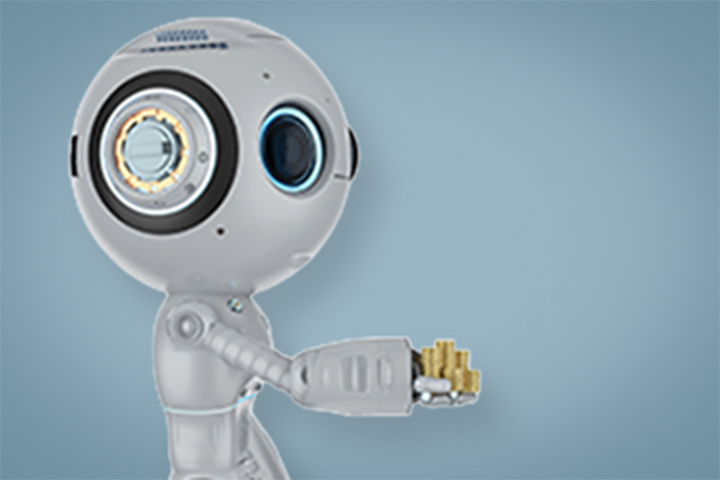Is the economy grinding to a halt?

Keytrade Bank
keytradebank.be
February 17, 2022
(updated September 22, 2022)
3 minutes to read
Anyone who has kept an eye on the stock markets in recent weeks may think economic growth is slowing. Inflation is rising sharply, COVID-19 is still with us, and fears surrounding the conflict in Ukraine are spreading. One may think, then, that a recession is on the horizon and that corporate earnings could come under pressure. However, nothing is ever what it seems. Economic growth remains positive, though there has been a slight dip due to omicron.
If we look at the news headlines today, we'd think that we were living in a time of crisis. A new crisis, however, does seem to be around the corner with rising inflation and geopolitical tensions between Russia and the West. Add to that the poor state of the stock markets, and you'd be forgiven for thinking that the global economy is heading for an imminent recession. But is this the conclusion we should be drawing from these developments?
Let's take a look at the latest report on the trend in global manufacturer confidence, which is a crucial indicator of the state of play.
The J.P.Morgan Global Manufacturing PMI has already proven its worth as an indicator of the global economy's future growth, and economists and portfolio managers look at the absolute level of this index each month. A figure above 50 indicates expansion, while a figure below 50 indicates a contraction in industrial activity. Looking at Figure 1, we have experienced a slight decline in recent months. This suggests that industrial companies worldwide are experiencing somewhat lower growth in their activities. However, the absolute level is 53.2 points, which still suggests there is some growth in industrial production. We can conclude that there is still no fear at present of a slowdown in economic growth. In our opinion, the slight decline in the index is due to the lingering effects of the COVID-19 pandemic.
Figure 1: The evolution of global manufacturing confidence in industry

Source: IHS Markit
The main economic consequence of the coronavirus pandemic was the disruption of the logistics chain as a whole. As the supply of key components such as semiconductors and other technological components from the Asian manufacturing countries to Western customers ground to a halt, our production companies saw a sharp decline in activity. As an example, German car manufacturers were forced to manufacture fewer luxury cars due to a lack of semiconductors (chips). This, of course, has impacted economic activity and growth. Nevertheless, there is some good news, as Figure 2 shows a drop in the number of companies reporting shortages of certain goods and services. This should have a positive impact on growth in the coming months and quarters.
Figure 2: Companies worldwide reporting a shortage of components

Source: IHS Markit
The omicron wave also had a negative impact on economic growth in the short term. This hit Asian manufacturing countries particularly hard, as it restricted the availability of the workforce in the manufacturing process. In the West, large-scale vaccination campaigns had the most positive impact, but here, too, we regularly saw reports in the news of companies scratching their heads regarding the restricted availability of their staff. Again, this trend inevitably had – and continues to have – an impact on economic growth and activity. In our opinion, it is the most significant explanation for the slight decline in the J.P.Morgan Global Manufacturing PMI.
Figure 3: Companies worldwide reporting a shortage of labour

Source: IHS Markit
Conclusion
Despite the barrage of 'negative' news faced by investors today, we should not hasten to believe that the global economy is in a state of crisis.
A brief analysis of the latest report on the trend in global manufacturing confidence shows a slight downturn in economic activity among manufacturing companies. In our view, however, this minor decline is due to the new wave of the coronavirus, which has led to a (temporary) labour shortage at many companies. As a result, economic growth has shifted down a gear. Fundamentally, however, we still see a scenario of positive economic growth and do not fear a recession for the time being.


